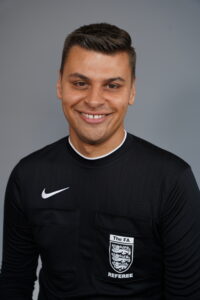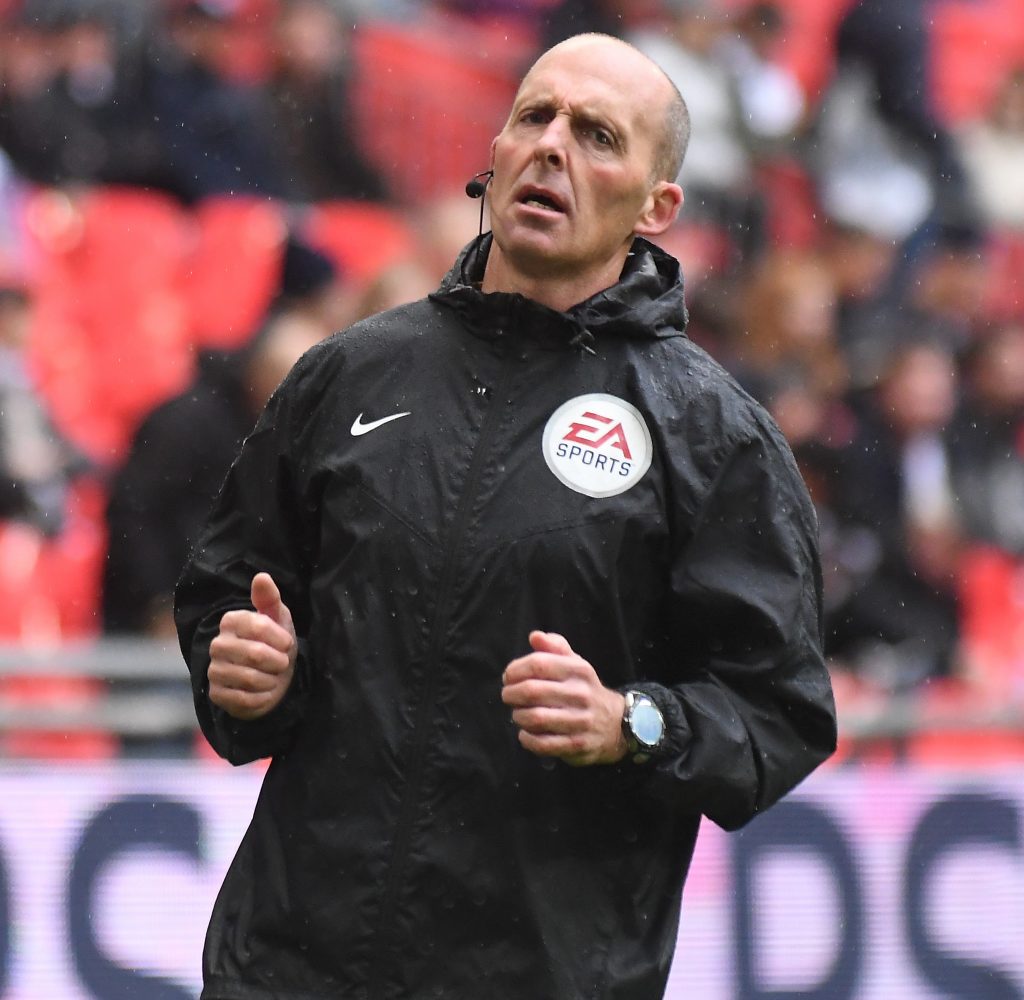Are you able to concentrate on refereeing, or does the weather or ground mentally affect your performances?
Wind, rain, snow, excessive heat, humid temperatures, and glaring sun can affect playing surfaces and matchday conditions. It is challenging to be at your best when weather conditions are not optimal.
But why do some officials referee better in cold weather? Why do some officials seem to be unaffected by the heat? Why do some referees find a way to get the big decisions correct when weather conditions are adverse?
The answer is simple. Some officials referee better in adverse conditions due to a choice they make. That choice is where to apply their focus.
Imagine this scenario. You’re appointed to a Saturday 12:00 fixture. You wake up early in the morning to 3°c temperatures, dark cloud and steady rain. You look outside and think:
“This is horrible. I don’t want to referee in these conditions. The field of play is going to be muddy. I never officiate well in the cold.”
On and on, you lament about the weather. You arrive at the ground and are miserable. The playing teams are going through their typical warm-up while you commiserate to your team about officiating in cold, dark and rainy conditions.
At this point, the playing teams have a significant mental advantage, even though you are refereeing the game on the same pitch under the same conditions. Why would you give the playing teams a mental edge before the game even starts?
The issue at hand is not the weather. The problem is your focus. If you focus on rain, mud, cold, heat, or snow, you are not focusing on officiating your game.
No matter the weather, everyone on the field of play is under the same conditions. However, many teams often participate in the game with opposing mindsets, and those mindsets are choices!
You Can Choose to Focus on How You Will Facilitate The Game Instead of Focusing on The Weather
You can gain a significant edge if you change your mindset.
Imagine how well you would referee if this were your thought process:
“Most officials don’t like refereeing in the rain and cold. This is where I can separate myself from the other officials. While they are hesitant on the field of play, I will be alert. These are the conditions where I excel. My focus will be the difference-maker.”
With this mindset, you will start the fixture with greater confidence and a mental edge.
In American football, in a 2022 National Football League mid-season game against the Buffalo Bills, the Miami Dolphins were expected to play in cold temperatures and the strong possibility of snow. Not only were the Bills playing at home, but they were also accustomed to playing in cold conditions.
Miami quarterback Tua Tagovailoa commented he focused on competing, not the potential weather conditions.
“I think for me, it’s understanding that there could be many things — could be snowing, it could rain, I don’t know. For me, at least, it’s a mindset thing, really. If I’m too focused and worried about, ‘Is it too cold? Can I really grab the ball? Can I not,’ then I would say I’m focused on the wrong things. It’ll be hard to play that way going down there and playing against a good team.” – Tua Tagovailoa, Quarterback, Miami Dolphins
Miami head coach Mike McDaniel succinctly stated that playing in unfavourable weather comes down to mindset.
“To me, you just decide if you’re going to let it factor in or not, and then you adjust as best you can. It is the same field, the same elements, so you just decide mentally how much you will let it affect you.” – Mike McDaniel, Head Coach, Miami Dolphins
What will you allow to affect your game, or will you choose the mindset to compete no matter the circumstances?
Tip for Gaining a Mental Advantage Refereeing in Bad Weather
Before leaving your house, establish your mindset. Write three positive statements about how you will mentally approach the upcoming fixture.
For example:
“Refereeing in this weather is to my advantage. While others are focused on the weather, I will focus on my officiating the game. I will remain mentally tough throughout the 90+ minutes.”
You want to embrace refereeing in any conditions so you’ll have the mental advantage!
At The Third Team I work individually and in collaboration with different professionals where I have developed workshops and 1-2-1 sessions associated with Resilience and Mental Toughness Development to help referees. The workshops and 1-2-1 sessions are interactive, where referees are encouraged to open up and share their experiences to help themselves and each other.
Feel free to contact me if you’d like to know more about my workshops or 1-2-1 sessions and how I could help you or your officials.
Best Wishes,

Nathan Sherratt
Referee Educator & Managing Director of The Third Team

Nathan Sherratt
Nathan Sherratt, Referee Educator, Resilience Trainer and Managing Director of The Third Team. A Mental Toughness Practitioner based in County Durham, North East England.

